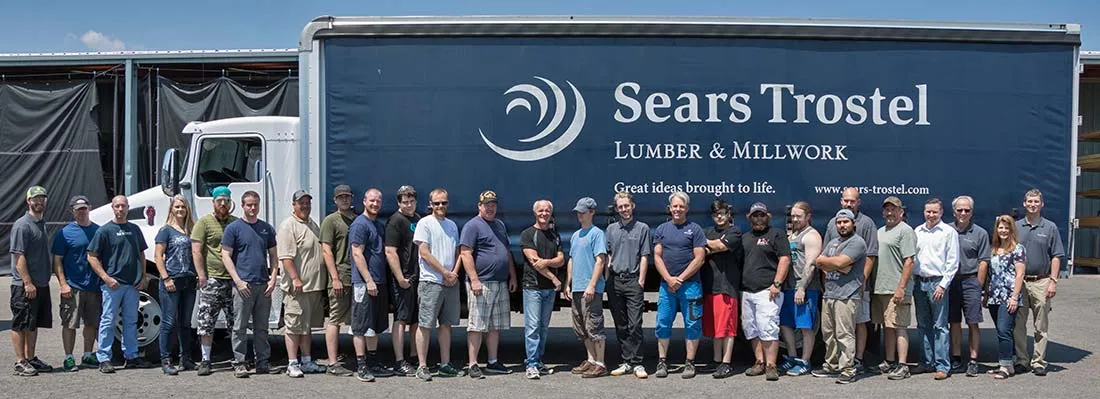Table of Contents
A Special Series from NAWLA
It wasn’t much of a surprise that I landed in this industry. My father has been in the lumber business for more than 50 years. I suspect a similar story is true for many of you.
Just as people like us essentially only think of lumber during our careers, there are many talented people out there in other industries who simply… don’t. They’re thinking of the stock market. Or cars. Or software. Or communications. Or construction. Some of the most talented people in the pipeline may never think of lumber as a potential career path, but maybe, just maybe, we can put it on their radars.
As I progress in my career and meet may people along the way, I appreciate what this industry has given to me, and what it can provide to those willing to join us.
A Good Living
As I was making my way through university, it became clear that earning a good wage and being able to support a family was possible with this line of work. I started on the transportation side of things, around 20 years ago. I eventually ended up trading, and now spend my days managing our division.
We all know that this industry is very sensitive and responsive to market trends. We also can probably agree that it’s harder to make money now than it was 20 years ago, given market conditions and the changing landscape of the supply chain. Still, I maintain that any career here is a good one.
The transportation squeeze we’re all feeling (The American Trucking Association reports a current estimated shortage of about 50,000 driving professionals) has resulted in unprecedented high wages and benefits for truck drivers. Great news, if you’re thinking about a career on the road. But this sort of challenge also opens opportunity for us to be more creative in how we get product to market—a task suited for someone with any sort of supply chain success. Finding those creative minds is crucial.
Perhaps less understood is the sustainability of what we do. Remaining in business is dependent upon us being responsible and thoughtful with our renewable resource. Doing so ensures we remain relevant, and ultimately, employed. It’s important we remember to communicate that to those considering a career here.
Cherished Relationships
I’ll never forget one of the first bits of advice my dad gave me when I began my career: “Your name is everything.” I don’t have to tell any of you reading this magazine, nothing could be more true with our line of work. Your reputation determines your success in lumber, period.
In the middle of the 20th century, researcher Albert Mehrabian introduced two studies that supported a “7-38-55 Rule” of interpersonal communication. He maintained that just 7% of what we communicate is in the words we say. Tone of voice accounts for 38%, and a whopping 55% is in our body language. Without a doubt, this is true of those the forest products industry. The face-to-face time we spend together at Traders Market and other gatherings throughout the year is crucial to our success. A $70,000 deal in a railcar is agreed upon with a handshake.
It’s also worth noting that these relationships aren’t exclusively for business purposes. Cherished friendships have blossomed from the connections we make, too. Families have holiday parties and take vacations together. That, my friends, is real.
A Rewarding Experience
When I started trading, no one sat me down to tell me how to do this job. A book was flopped on my desk and someone said, “Pick a state, and start calling.” That was the climate back then, and that’s how we learned.
Today, things are quite different. I spend a good deal of my time mentoring those new to the workforce. They can run circles around me with Excel, email, and social media—and those are valuable skills. But what I’m able to provide is guidance to personalize one’s work and build relationships every single day. I find it rewarding to mentor those who did choose lumber, and to help position them for future success.
I believe there’s something for just about everyone in lumber. From driving a forklift to sales to accounting to IT to marketing and beyond—using one’s passion in this industry could reap amazing awards, for those willing to try. Finding what makes one happy in any industry is paramount. Forest products may not be top-of-mind at universities or with those embarking on new career paths, so it’s up to us to share our successes and sing the praises of what we do. The survival of our industry may depend upon us doing so.









